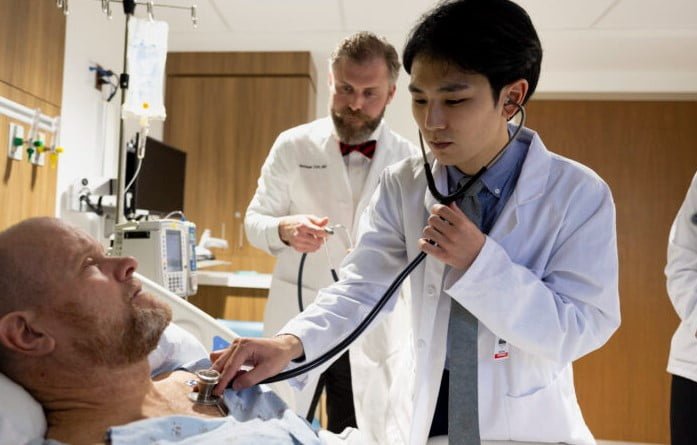University of Georgia Authorized to Establish Independent School of Medicine

University System of Georgia Board of Regents approves landmark decision to address medical professional shortage.
Tackling a Critical Need
Georgia, facing a pressing shortage of medical professionals, witnesses a milestone as the University System of Georgia Board of Regents greenlights the establishment of a new independent School of Medicine at the University of Georgia (UGA). With the state’s population swelling and a significant portion of physicians nearing retirement, the move is poised to address healthcare accessibility issues, particularly in underserved and rural communities.
The authorization, granted on February 13, marks a significant step forward in addressing the healthcare challenges faced by Georgia. According to recent data, Georgia ranks 40th among U.S. states for the number of active patient care physicians per capita, highlighting a critical deficit in healthcare providers. Furthermore, the shortage is particularly acute in rural areas, exacerbating disparities in access to quality healthcare services.
“This decision by the Board of Regents is crucial for the future of healthcare in Georgia,” remarked UGA President Jere W. Morehead. “The establishment of the University of Georgia School of Medicine underscores our commitment to addressing the healthcare needs of our state and expanding access to medical education for aspiring physicians.”
Building on Partnerships and Success
The foundation for the UGA School of Medicine is laid upon the success of the Augusta University/University of Georgia Medical Partnership, which has been operational since 2010. This collaborative effort has played a pivotal role in educating physicians in Athens and has emerged as the longest-serving medical partnership in the United States. Building upon this success, the transition to an independent medical school is seen as a natural evolution, one that is poised to further expand the pool of highly trained physicians in Georgia.
Dr. Shelley Nuss, campus dean of the AU/UGA Medical Partnership, expressed enthusiasm for the Board of Regents’ decision, highlighting the potential impact on healthcare in the state. “By expanding the pipeline of students in medical education, the UGA School of Medicine will help Georgia produce more highly trained physicians, alleviating physician shortages and improving the state’s ability to provide quality health care for its citizens,” Dr. Nuss stated.
The transition to an independent School of Medicine will be conducted in close collaboration with the Medical College of Georgia to ensure a seamless experience for current medical students. Efforts to secure accreditation from the Liaison Committee on Medical Education (LCME) are underway, underscoring the commitment to maintaining rigorous standards in medical education.
Fueling Discovery and Economic Development
Beyond addressing healthcare needs, the UGA School of Medicine is poised to serve as a catalyst for economic development and research advancement in Georgia. The establishment of the school is expected to attract top-tier researchers, scientists, and biomedical companies to the state, fostering innovation and collaboration across various disciplines.
UGA Senior Vice President for Academic Affairs and Provost S. Jack Hu emphasized the broader impact of the School of Medicine, stating, “The school will attract additional researchers and scientists as well as biomedical companies and startups, fueling discovery and commercialization that create new opportunities for Georgians.”
The addition of the School of Medicine will complement UGA’s existing research enterprise, which has witnessed significant growth in recent years. In fiscal year 2023, UGA’s total research and development expenditures reached an all-time high of $570.9 million, reflecting a 61% increase over the past decade. Notably, UGA receives the largest amount of funding from the National Institutes of Health (NIH) among all of Georgia’s public research universities, highlighting its prominence in biomedical research.
Moreover, the establishment of the UGA School of Medicine is expected to strengthen partnerships with other research universities and medical schools in Georgia, facilitating collaboration on key research initiatives. Faculty across various colleges and schools at UGA are already engaged in research on a wide range of health-related topics, including Parkinson’s disease, COVID-19, malaria, and stroke. These research efforts have led to the development of new treatments and vaccines, underscoring the university’s commitment to advancing healthcare solutions.
Fortified by Public and Private Support
In addition to funding from the state government, the establishment of the UGA School of Medicine is supported by robust private donations. In fiscal year 2023, UGA raised over $240 million in gifts and pledges from alumni, friends, and foundation and industry partners, reflecting strong support for university initiatives. The university’s fundraising efforts have consistently exceeded $200 million annually for the past six years, underscoring the commitment of stakeholders to advancing education, research, and healthcare in Georgia.






